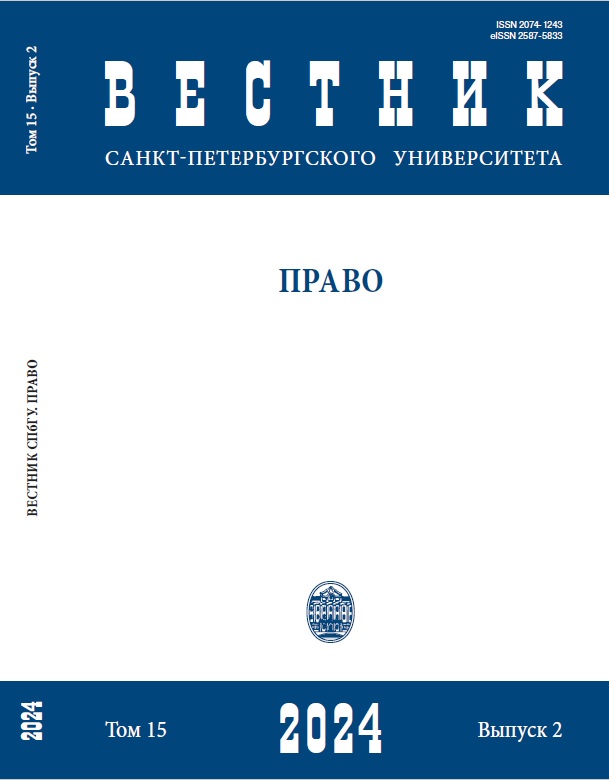Ordinary and extraordinary satisfaction as forms of nonmaterial liability in international law
DOI:
https://doi.org/10.21638/spbu14.2024.209Abstract
The article explores the forms of non-material liability in international law, namely ordinary and extraordinary satisfaction, through the lens of legal theory and factual analysis. The authors provide an overview of the peculiarities of non-material damage in the context of international relations. The essence of ordinary satisfaction is revealed. To satisfy the political claims of
the victim state, various measures are being contemplated, which include making apologies, expressing regret and condolences, rendering honors, and giving assurances. It should be stressed that the measures in question can be employed either individually or collectively, depending on the situation. Examples of the ordinary satisfaction are presented, accompanied by a brief summary of the incident that necessitated the fulfillment of non-material demands. The key requirements for ordinary satisfaction include formality, publicity and transparency,
with solemnity and symbolism being highlighted as necessary. It is emphasized that ordinary
satisfaction should be adequate and proportional to the damage caused, it is pointed out that the use of forms humiliating to the responsible state is unacceptable. It is worth noting
that measures expressed through satisfaction are consistently directed towards the state as a subject of international law. The extraordinary satisfaction, if deemed necessary, not only
the temporary restriction of state bodies’ powers and the reorganization of certain elements in the political and social system of the violating state but also the temporary occupation of its territory, which highlights the exceptional nature of the measures implemented. The article covers the experience of the victorious allied forces implementing measures to abolish the entire state mechanism of Nazi Germany. It has been established that ordinary and
extraordinary satisfaction are significantly distinct in terms of the nature of their impact on the offender, because both forms represent non-material liability for internationally wrongful acts, which, however, differ fundamentally in terms of their severity.
Keywords:
international liability, non-material liability, ordinary satisfaction, extraordinary satisfaction, satisfaction of claims, international offense
Downloads
References
Downloads
Published
How to Cite
Issue
Section
License
Articles of "Vestnik of Saint Petersburg University. Law" are open access distributed under the terms of the License Agreement with Saint Petersburg State University, which permits to the authors unrestricted distribution and self-archiving free of charge.






